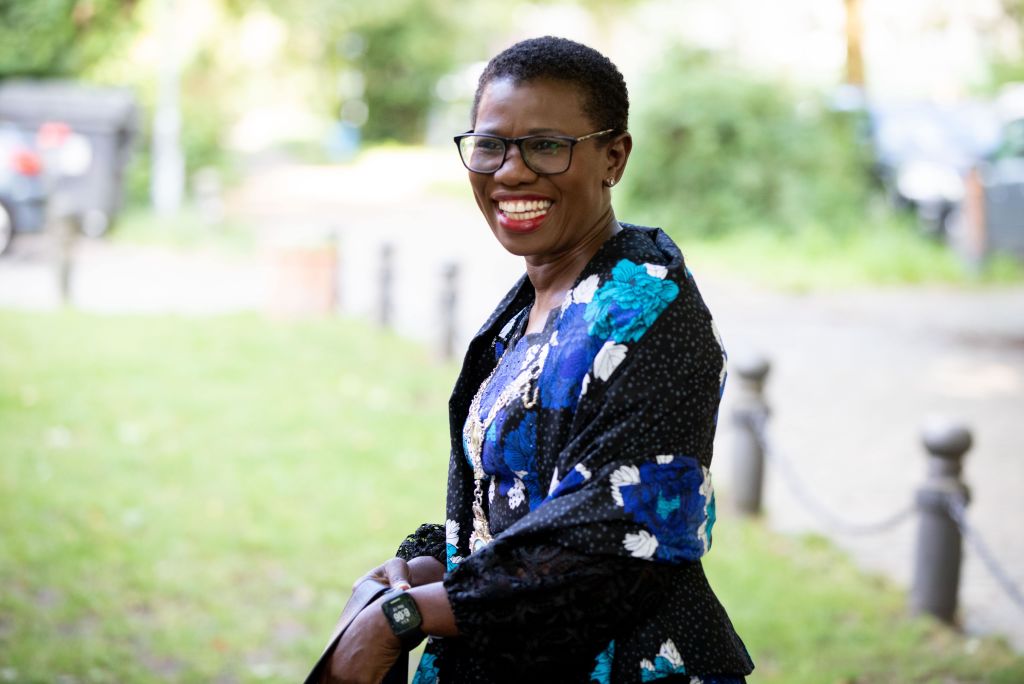Follow the Data Podcast: How Freetown, Sierra Leone is Responding to COVID-19

As COVID-19 spreads rapidly in cities around the world, the virus poses an urgent challenge to mayors and city health officials worldwide. And while doctors and public health officials continue to learn more about the virus, they’re certain COVID-19 is especially dangerous for those who suffer from noncommunicable diseases like heart conditions and asthma.
That’s why the Partnership for Healthy Cities – which was created by Bloomberg Philanthropies to tackle noncommunicable diseases and injuries in 70 cities – is jumping in to provide immediate assistance for cities to respond to the virus.
One of the initiatives the Partnership for Healthy Cities has launched is a series of virtual convenings, giving local leaders guidance on how to implement public health interventions while minimizing social and economic impacts. These convenings – although virtual – also serve as a venue to exchange COVID-19 experiences and strategies among mayors.
The Partnership for Healthy Cities is supported by Bloomberg Philanthropies in partnership with the World Health Organization and Vital Strategies.
To tell us more about this initiative, Mayor Yvonne Aki-Sawyerr of Freetown, Sierra Leone, spoke with Dr. Kelly Henning, who leads the public health program at Bloomberg Philanthropies. They discuss how Freetown is responding to the COVID-19 pandemic, how global mayors are sharing information during the coronavirus crisis, and what’s keeping mayors hopeful right now.
You can listen to the podcast and past episodes in the following ways:
- Stream it on SoundCloud.
- Check us out on Spotify.
- Download the episode from Apple Podcasts and be sure to subscribe.
- Listen to us on Stitcher – be sure to rate and review each episode!
- Tune in on Simplecast.
For more from our coronavirus series:
Our most recent episode, “The Cost of Recovery for Our Cities, Part 2,” features Rose Gill, a Principal at Bloomberg Associates and Steven Kobre, a Partner at Kobre + Kim. They discuss the role of monitors in reviewing the use of federal funds, emerging cases that involve fraud, and how city leaders managing COVID-19 federal aid can mitigate risks. Rose also sits down with Jerry DeLoach, the Head of the Cost Recovery team for the City of Atlanta, to discuss how the city is responding to COVID-19 while tracking expenditures to maximize federal reimbursements and recovery.
Dr. Arturo Casadevall, an infectious disease expert and Bloomberg Distinguished Professor at Johns Hopkins University who is developing a convalescent serum therapy to treat COVID-19 using blood plasma from recovered patients, joined Dr. Jessica Leighton from our public health team in a recent podcast episode entitled, “A Promising Treatment for COVID-19.” They discuss how blood plasma has been used to treat infectious disease outbreaks in the past, what makes blood plasma treatment different from a vaccine, how donating your blood plasma could help your community, and what’s giving researchers hope right now.
“Slowing the Spread of COVID-19 in Africa” features Amanda McClelland, the Senior Vice President of Prevent Epidemics and Resolve to Save Lives at Vital Strategies, and Dr. Jennifer Ellis, who works on our public health program. They discuss why it’s important to prioritize why it’s important to prioritize slowing the spread of coronavirus in low- and middle-income countries, the importance of the Box It In strategy, and how response to the coronavirus has differed from other recent outbreaks.
Adam Freed, a Principal at Bloomberg Associates, joins Natasha Rogers, the Chief Operating Officer of the City of Newark, and Brad Gair, a Principal with Witt O’Brien’s, a national emergency management consultancy, for “The Cost of Recovery for our Cities, Part 1,” the first episode in our two-part series about how cities can best navigate, access, and deploy federal aid.
“The Intersection of COVID-19 and Transportation” focuses on the challenges coronavirus poses for city transportation departments, who need to keep people, goods, and services moving. Janette Sadik-Khan, a Principal at Bloomberg Associates and chair of NACTO, speaks with Corinne Kisner, Executive Director of NACTO, and Mark de la Vergne, the Chief of Mobility for the City of Detroit, to discuss how cities are continuing to run transit systems while keeping their own staffs safe.
Dr. Josh Sharfstein, the Vice Dean for Public Health Practice and Community Engagement at the Johns Hopkins Bloomberg School of Public Health, and Beth Blauer, Executive Director of Centers for Civic Impact at Johns Hopkins, discuss how the global COVID-19 tracking dashboard was made, what new features have been added, and how data can help individuals and officials make informed decisions for COVID-19 response in “Behind the Scenes of the Johns Hopkins Coronavirus Map.” The episode was adapted from “Public Health On Call,” a new podcast from the Johns Hopkins Bloomberg School of Public Health.
Dr. Sharfstein also joined Jessica Leighton, who works on our Public Health program, to discuss crisis response for public health practice and how the Johns Hopkins Bloomberg School of Public Health is tackling the coronavirus from every angle in “Responding to a Pandemic Crisis.”
“How to Help Nonprofits Hit Hard by COVID-19” focuses on how the coronavirus is affecting New York City social service and cultural organizations. Darren Walker, president of the Ford Foundation, one of Bloomberg Philanthropies’ co-funders in the NYC COVID-19 Response & Impact Fund, sat down with Megan Sheekey, who leads strategic partnerships at Bloomberg Associates, to discuss where the greatest needs are, the roles of foundations in supporting these groups, and how listeners can get involved.
For the first episode in our coronavirus series, “World War C – Us Against the Microbe,” Dr. Tom Frieden, the President and CEO of Resolve to Save Lives, and the former director of the CDC, joins Dr. Kelly Henning, who leads the Public Health program and the former Director of the Epidemiology for the City of New York, to discuss the global response to COVID-19.